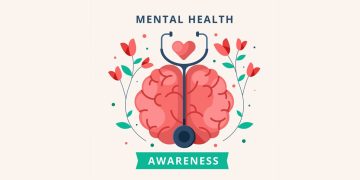The Complete Guide to Improving Your Cardiovascular Health
Cardiovascular health is essential for overall well-being and longevity. Taking care of your heart and blood vessels can significantly reduce the risk of heart disease, stroke, and other cardiovascular conditions. In this guide, we will explore tips, techniques, and expert advice to help you improve your cardiovascular health.
Why is Cardiovascular Health Important?
Your cardiovascular system is responsible for circulating blood, oxygen, and nutrients throughout your body. A healthy cardiovascular system can help maintain optimal function in all organs and tissues, as well as reduce the risk of chronic diseases like heart disease, stroke, and diabetes. By improving your cardiovascular health, you can enhance your quality of life and longevity.
Key Tips for Improving Cardiovascular Health
1. Eat a Heart-Healthy Diet: Focus on consuming a variety of fruits, vegetables, whole grains, lean proteins, and healthy fats. Limit your intake of processed foods, sugary beverages, and high-sodium foods.
2. Stay Active: Engage in regular physical activity to strengthen your heart and improve circulation. Aim for at least 150 minutes of moderate-intensity exercise per week, such as brisk walking, cycling, or swimming.
3. Maintain a Healthy Weight: Being overweight or obese can increase your risk of developing cardiovascular disease. Strive to achieve and maintain a healthy weight through a balanced diet and regular exercise.
4. Manage Stress: Chronic stress can have a negative impact on your cardiovascular health. Practice relaxation techniques like deep breathing, meditation, yoga, or tai chi to reduce stress and promote heart health.
5. Quit Smoking: Smoking is a major risk factor for heart disease and stroke. If you smoke, seek support to quit smoking and improve your cardiovascular health.
Techniques for Improving Cardiovascular Health
1. Cardiovascular Exercise: Incorporate aerobic activities like running, cycling, or dancing into your routine to strengthen your heart and boost circulation.
2. Strength Training: Building muscle can help improve your metabolism, burn more calories, and support cardiovascular health. Include strength training exercises like weightlifting or bodyweight exercises in your workouts.
3. High-Intensity Interval Training (HIIT): HIIT workouts involve short bursts of intense exercise followed by periods of rest or lower intensity. This form of exercise can help improve cardiovascular fitness and burn more calories in less time.
4. Yoga and Pilates: These mind-body exercises can help improve flexibility, strength, and balance, as well as reduce stress and promote heart health.
5. Swimming: Swimming is a low-impact aerobic exercise that can improve cardiovascular fitness, muscle strength, and flexibility. Consider incorporating swimming into your fitness routine for a full-body workout.
Expert Advice for Improving Cardiovascular Health
1. Consult with a Healthcare Provider: Before starting any new exercise or diet regimen, consult with your healthcare provider to ensure that it is safe and appropriate for your individual needs.
2. Monitor Your Blood Pressure and Cholesterol Levels: Regularly check your blood pressure and cholesterol levels to identify any potential risks for cardiovascular disease and take steps to address them.
3. Consider Genetic Testing: If you have a family history of heart disease or other cardiovascular conditions, genetic testing may help identify your risk factors and guide personalized interventions to improve your heart health.
4. Stay Informed: Keep up to date on the latest research and guidelines for cardiovascular health. Attend seminars, workshops, or webinars on heart health to stay informed and motivated to make positive changes.
Conclusion
Improving your cardiovascular health is a journey that requires commitment, diligence, and a holistic approach. By following the tips, techniques, and expert advice outlined in this guide, you can take proactive steps to enhance your heart health and reduce the risk of cardiovascular disease. Remember to consult with your healthcare provider before making any significant changes to your lifestyle, and stay informed about the latest developments in heart health to stay on track towards a healthier heart.
By prioritizing your cardiovascular health, you can not only improve your quality of life but also reduce the risk of chronic diseases and promote longevity. Start implementing these strategies today to take control of your heart health and enjoy a healthier, happier life.












































